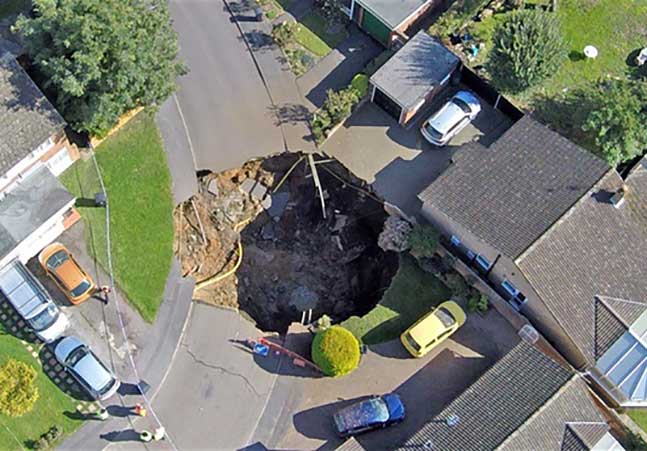Spring has always been a popular time of year for people to move home, perhaps because of some instinctive nesting instinct, or more likely because people’s schedules are relatively clear in that lovely, calm period between Christmas and the summer holidays.
But moving home is not as simple as deciding how much you can afford and then choosing a house that fits into that price range. Here are our tips on how to find the right home for you. Once you have identified the area you want to move to and found some houses that fit your budget, start your investigations.
What you can investigate for yourself:
1. Schools
Whether you have children now or are of child-bearing age, a crucial part of choosing a house is knowing where your children will go to school. If you are planning to privately educate your children then obviously this is not an issue, but if you are planning to rely on state education then you will need to investigate catchment areas. Some estate agents do have details of school catchment areas, but otherwise you will need to speak to the Local Authority’s Education department yourself to gather this information.

Once you have the names of the schools in the area you want to move to, do your research on each of those schools. Every school will have an Ofsted report, which you can access easily online, but bear in mind that Ofsted reports are no substitute for visiting a school to get a ‘feel’ of the place. Most schools are very happy to welcome prospective parents in for a visit – have a look around and see how the school presents itself to the casual visitor (as opposed to an Ofsted inspector on three days' notice!).
Do the children look happy? Do the teachers smile at the children and is there a good standard of work visible on the displays? Is there a line of children sitting grumpily outside the head teacher’s office? Is there graffiti, or piles of cigarette butts outside the entrances?
Once you have found a school (or schools) you are happy with, then look at where you would need to live to guarantee a place for your child there. If you have already identified a house and are happy with the catchment school, then all is well. If you have identified the house you like but the local school is not appealing, consider your options:
• You could choose another house.
• You could investigate other local schools and weigh up the chances of getting your child in there (some primary schools may be expanding, for instance, and have places available).
• The price of houses in catchment areas of popular schools is usually far higher than other local housing. Decide whether you want to spend extra money on a house in that catchment area, or spend that money on privately educating your child if that is the only viable alternative.
2. Neighbours
A good neighbour can enrich your life – they can be your friends, people you can rely on to feed your cats while you're away or keep an eye on your house or put your bin on the kerb for you if you forget. A bad neighbour can make your life hell, whether through excessive noise (loud music or a dog barking constantly will wear you down) or, worse, abusive behaviour. Coming home should be a relaxing feeling, not something that makes you anxious and upset.
First of all, ask the sellers how they get on with the neighbours. They may be frank, but then again they are trying to sell their house, so they may not give you the full picture. Knock on a neighbour’s door and start a conversation – tell them you’re thinking of buying a house on the street and wondered if there’s anything they can tell you about the area. You will get a feel for whether they are people you will get along with or not and they may tell you some useful things about other neighbours’ behaviour.
Visit at different times of the day and even make a late-night visit to sit in your car on the street and monitor noise levels for yourself.
3. Local amenities

Everyone is different in terms of what they want from their local area – some want peace and quiet and solitude, others want nightlife, shops and amenities. Check that your area has what you want in terms of day-to-day facilities, but also check whether your area has a hospital with an A&E and maternity unit (if that is likely to be needed by you in the future). Get a sense of the local community by having a look at community noticeboards, which may be located in the post office, library or outside the local church.
What your solicitor can tell you
Some information about the house you want to buy will be provided to you by your solicitor, who will conduct several searches on your behalf as part and parcel of your purchase. These include:
Local Authority searches
These will tell you of any plans that are afoot for changes within the area immediately local to your home, such as new road constructions or housing developments.
Title searches
These prove that the sellers are entitled to sell, and give details of any restrictions on the property - for example, you may not be allowed to build on the garden (which may stymie any plans you had for an extension).
Flood risk and/or environmental search

Photo Credit: www.winwaed.com
This will provide detailed information about historical and predicted flooding in the area, any contaminated land nearby, current and historical industry in the area, landfill sites and radon gas. An environmental search will also inform you of whether there are any known structural anomalies in the area (useful if you are buying in an area where there used to be coal mining, for example, and far better to know about in advance than to discover for yourself when your shed disappears into a mysterious cavern overnight).
If your investigations turn up some questions or concerns, your solicitor could run some additional searches such as noise abatement zones or common land searches.
Take your time
Do this groundwork and you will find a house that ticks every box for you. If you are selling your house as well, don’t feel pressured to find a house to buy at exactly the same time because rushing into a purchase may simply mean that you have to sell again sooner than you would otherwise wish to. If you secure a buyer for your property but haven’t yet found your ideal new home, sell anyway – you can put your belongings into storage and move into temporary rented accommodation for a few weeks until you have found the right house for you.
*****
Discover more
moving home articles on Safestore’s
blog where you’ll find a range of topics; from homeowner advice to expat tips and more. Or, if you require storage during a move we have a range of self storage options in over 100 locations – find your
nearest store for a quote today.